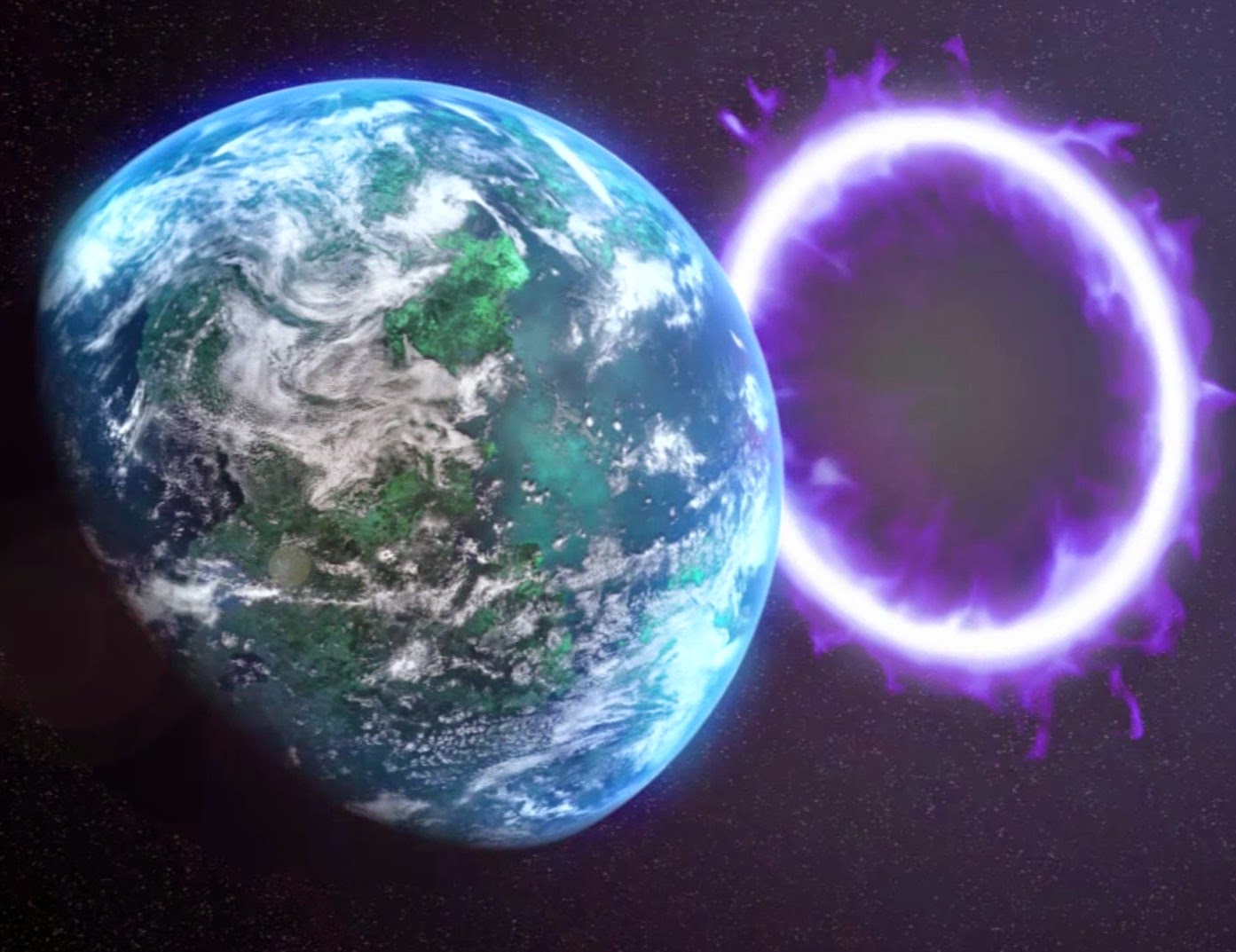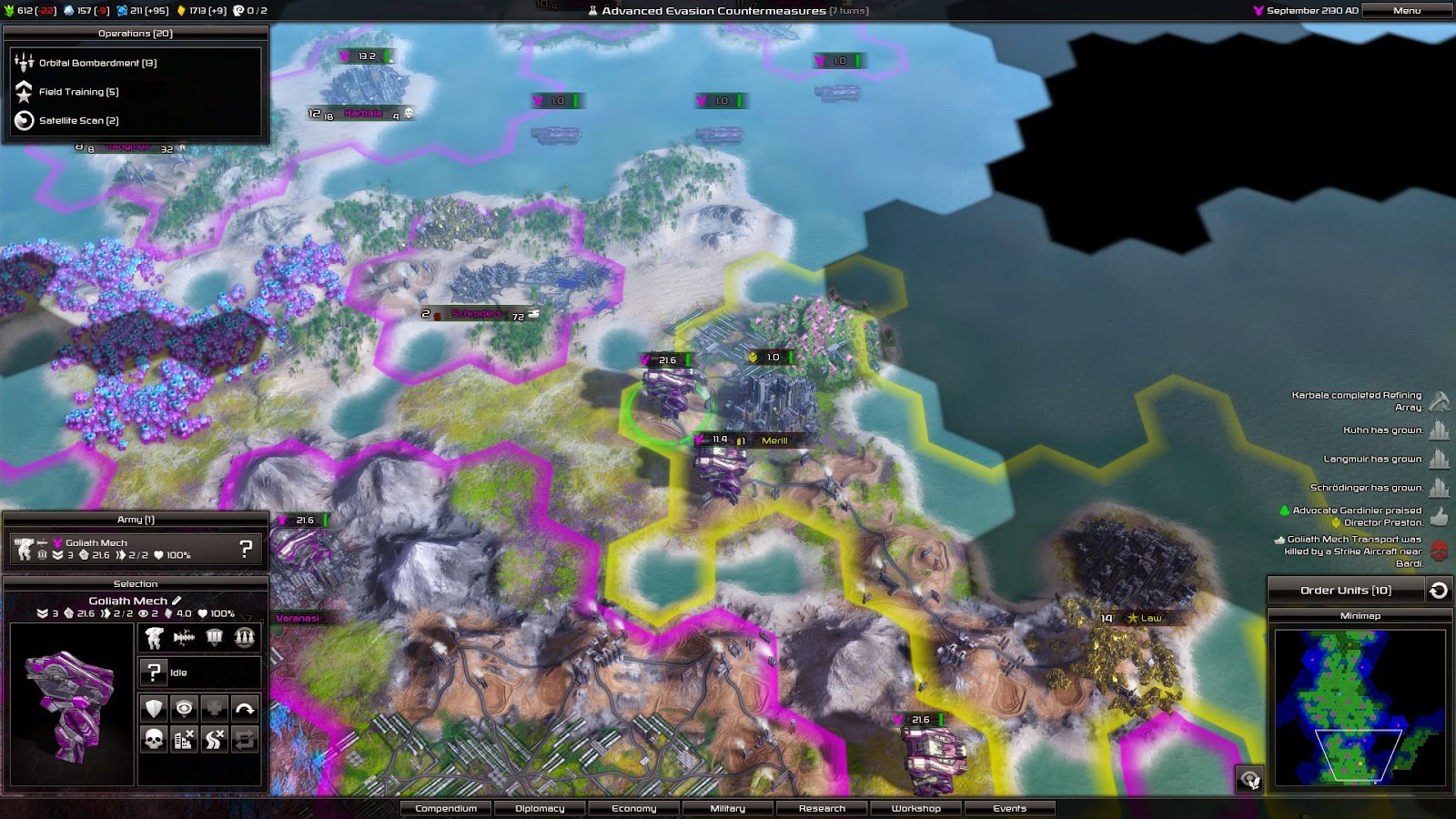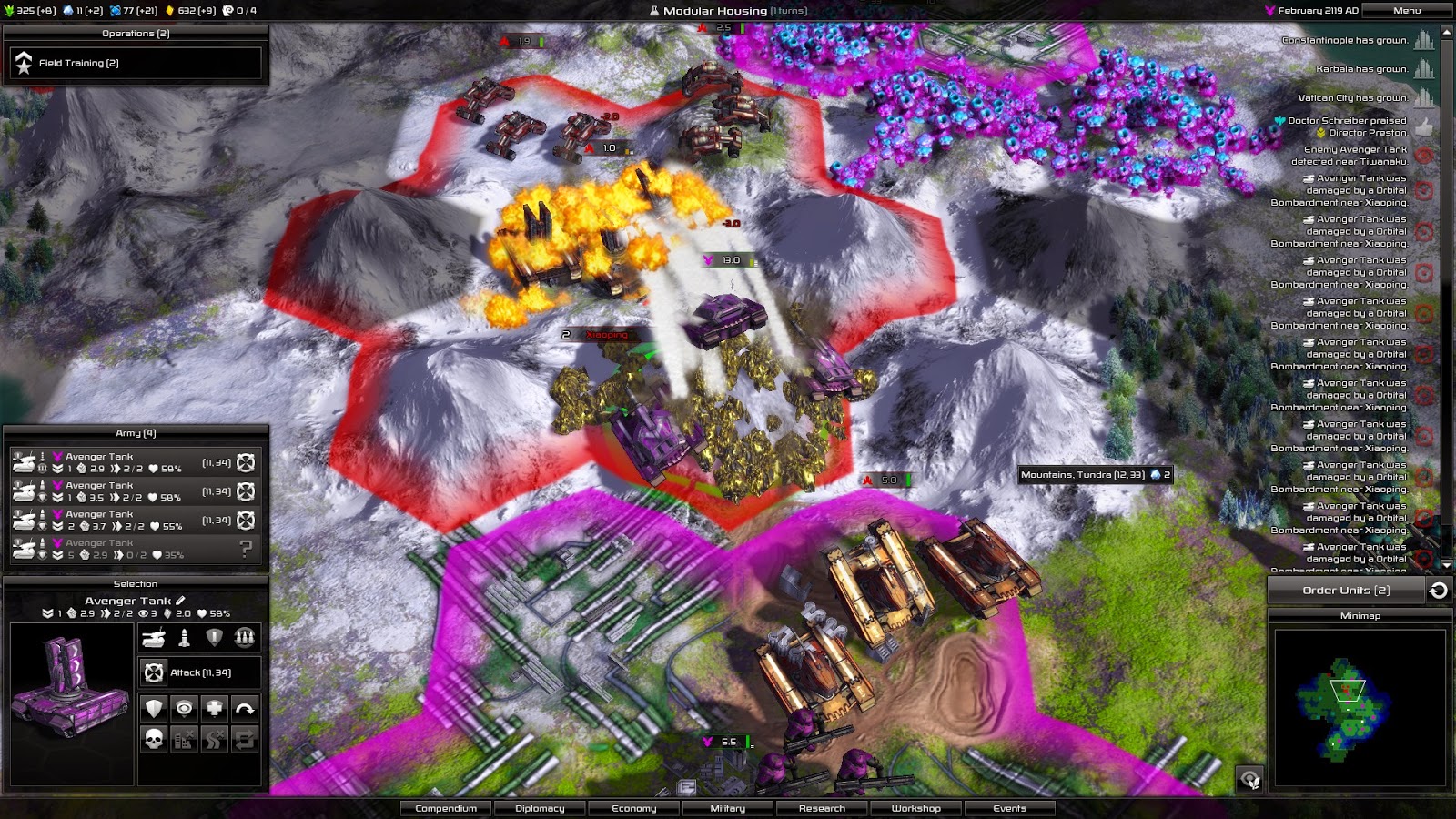 Review by Rob P.
Review by Rob P.
January, 2107. We are the ecologists of the Terra Salvum. Escaping the confines of a dying Earth, we have journeyed to Pandora to give Mankind a fresh start. Here is a new planet, rich with opportunity. A chance to avoid the mistakes of the past.
Turn 1: Landfall. We quickly establish a new city. This will be our capital, our base of operations, and our home. We intend to treat this planet with respect. But we are not alone. Five other factions – scientists, expansionists, soldiers, capitalists and fanatics – also have designs on this world. Their presence reminds us strongly of an old videogame known as ‘Sid Meier’s Alpha Centauri’. We cannot let them succeed.
Turn 12: Pandora is beautiful. Our scouts have returned with tales of shimmering seas, tall peaks, and mysterious life-forms. We plan to build another city and spread our message of peace and respect throughout the land. We are experiencing a comforting sense of familiarity – our leaders say that the task bears strong similarities to Civilization 5, with the unit management of Civilization 4 – so we are confident of success.
Turn 80: Disaster. Sensing our complacency, the fanatics of the Divine Ascension invaded our homelands and erased our presence from Pandora. We were forced to resort to ‘new game’ technologies and start all over again. Nevertheless, we failed twice more before we swallowed our pride and selected an easier setting. Only then could we progress beyond this point. We have learned not to underestimate our enemies.
Turn 120. Subtleties present themselves. The interface – our window on the world – is similar to those in Civilization and Alpha Centauri. However, it is simpler, cleaner, and city management is more streamlined. The flavour text is very well written. An excellent randomised research tree offers scope for customised unit upgrades and planet-wide projects. While there is still a strong sense of deja-vu, it is clear that Pandora is more alien than it first appeared.
Turn 150. The time of peace is at an end. It is time to declare war on our neighbours. Planetary harmony can only be achieved through superior firepower.
Turn: Classified. A time of global panic. The precise nature of this planetary event must remain a secret, lest spoilers ruin the experience for others. But the Steam page offers clues, and we find that it is a pleasing distraction from the mid-campaign lull that is common to this type of ‘game’. We are grateful to our strong military force for steering us through the crisis.
Turn 336. We have conquered our enemies. The wars were long, and sometimes drawn-out, but the other factions fought as bravely as ‘easy’ settings would allow. In the end, triumph came through technology. Many good mechs gave their lives to secure our victory, and many orbital bombardments ravaged the planet. Our expansion has left us with a legacy of pollution, economic decay and civil unrest. Our principles have been compromised. But we won. That ends our story.
Would we recommend Pandora to other colonists? Yes. But be warned: a subtle shift in mindset is required. Pandora: First Contact draws heavily – perhaps too heavily – on Sid Meier’s legacy, but it’s really a wargame in Civ’s clothing. While it’s possible to win an economic or scientific victory, war is always necessary. The other factions are aggressive and, as with similar games, the starting conditions strongly influence the eventual outcome. Nevertheless, Pandora offers a stiff challenge, and will keep space-faring strategists happy until Civilization: Beyond Earth breaches the event horizon later this year.
– Rob P.
Contributor









